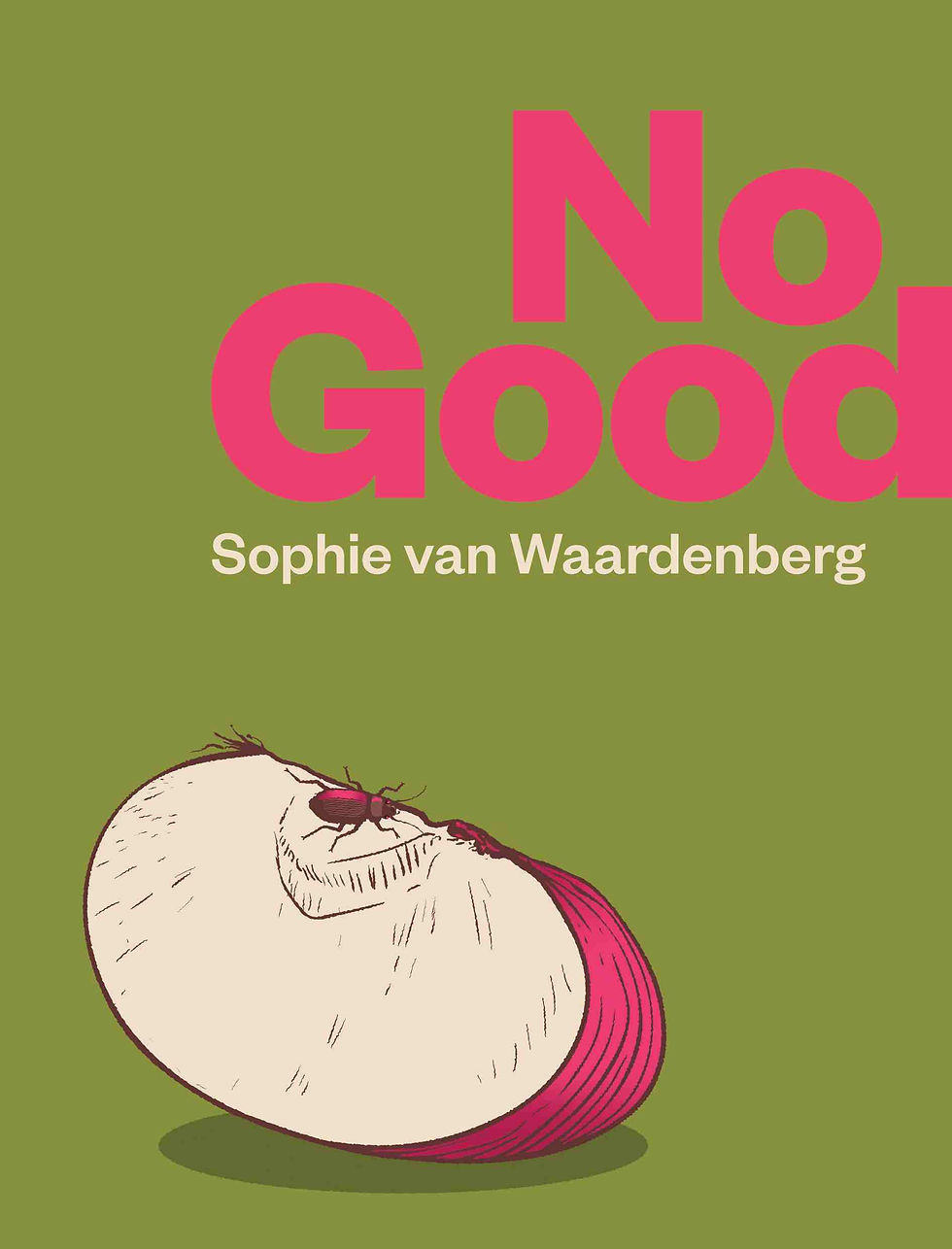No Good by Sophie van Waardenberg
- NZ Booklovers

- Oct 3, 2025
- 3 min read

I first encountered the poems of Sophie van Waardenberg six years ago in AUP New Poets 5. In there, she had a selection of 21 verses called does a potato have a heart? I remember a discussion of avocados in a London Sainsbury store, and how they were always ready to eat. At that point Sophie was about to leave New Zealand to study for an MFA in New York State.
These new poems, her first solo collection, feel very different and have obviously evolved out of those years of new experiences.
The most noticeable feature of No Good is the way the author has experimented with different forms and formats. The central part of the book contains a series of poems called Cremation Sonnet. There are sixteen sonnets, all with exactly the same title and no obvious way to differentiate one from the other beyond the order or a page number. For me they are the highlight of the book, building in their intensity. One of the sonnets uses the phrase ‘so what’ five times over its fourteen lines, ending like this:
So what?
I cannot accept this ending. I have fallen
From the highest ledge. I will never land.
So what if I am safe? I am not.
The eighth sonnet ends with these powerful lines:
ATTENTION PLEASE. Yes. Stop.
Everyone must feel like this. Must rend.
Must wreck. And yet that cannot be true.
If someone understood, I wouldn’t beg
So much attention. Please, my arms are empty.
I have laid it down, the rank and perfect
Onliness of my loss.
Up to this point, it is as though the poet has been keeping a lid on her emotions. Suddenly, there is a burst of power and anguish that come together in the tenth sonnet. It feels like a whole life compressed into fourteen lines. Here it is in its entirety:
They counted out your time left and you spent it
without any extraordinary grace.
They tried to say you’d exceeded expectations.
Maybe in efforts towards love
but not in dying. Maybe in brightness of thread,
consistency of hat, the line of song
bent in horsehair – not in dying. Maybe
in commitment to the wristwatch. To the spirit.
To the ocean. Not in dying. We thought
You’d always laugh while you were speaking
But you wore brown pyjamas you didn’t choose
And you spat out grape seeds and stopped talking.
Then you couldn’t love me.
Then you died. Then they burnt you.
After the Cremation Sonnet comes another selection in a similar format. These are called Love Poem and have six sonnets that slowly outline the development of a relationship with all its uncertainties and getting to know someone else. There is a great deal of raw emotion in No Good. There is humour too, but sometime you do feel that the narrator is being too hard on herself:
Darling get tired of me. I’ve no plans to improve.
Isn’t it difficult even inside love
to make tonight’s dinner? Pair the socks?
I see ahead years of tinned vegetables
and faulty decisions; you will lose your keys
and you will die of or beneath something
without me. No these days are barely soft.
From Song of the Selfish Girl come these final lines:
I am
a large dirty lake, a tepid naughty heart.
I do not want anyone to love me.
But when they don’t, why don’t they?
This is a great collection that leaves you wanting more and wondering where this talent will venture next.
Reviewer: Marcus Hobson
Auckland University Press



